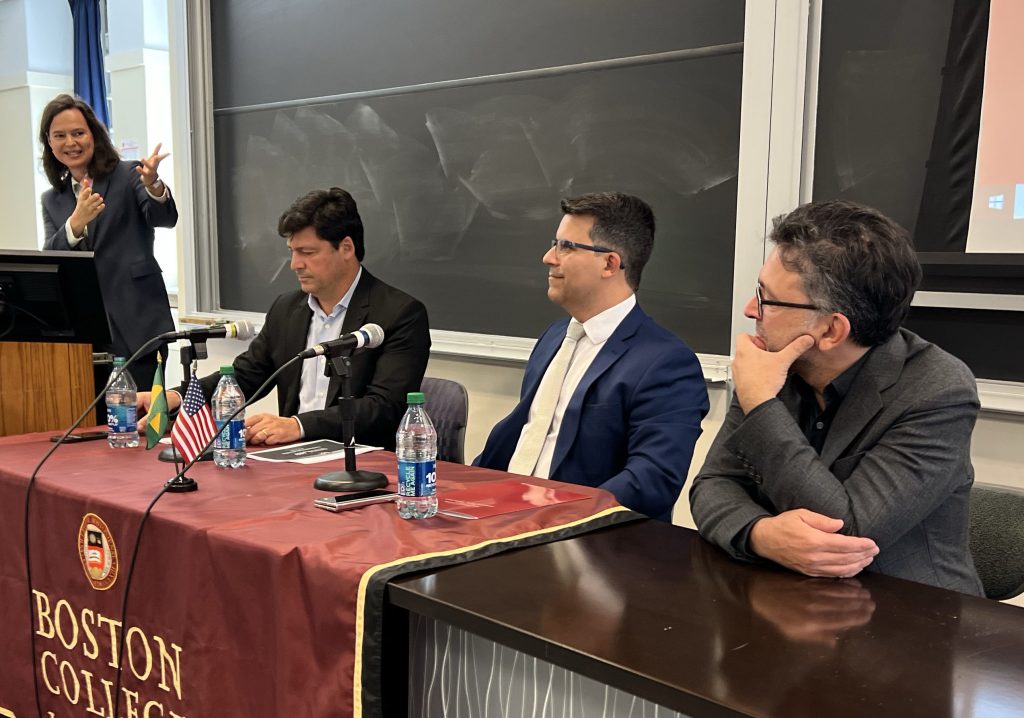As Brazil prepares to hold its presidential election on October 2, some of us might wonder if we ought to pay attention. To BC Law Professor Paulo Barrozo—and others on a September 27 panel at the Law School—the answer is obvious. Democracy, a “form of collective life that we have inherited from the 18th century,” is on the ballot, Barrozo said, and “we should all care, should all be Brazilians” next week.
The current President of Brazil, Jair Bolsonaro, is a controversial figure on the world stage, drawing flak over his policies toward Brazil’s indigenous population, the Amazon rainforest, and his handling of the COVID-19 pandemic. Ahead of this upcoming election, Bolsonaro has “followed the Trump rulebook that he copied from the fascism of the early 20th century,” according to Barrozo, sowing the seeds of “fake news” and delegitimizing the electoral process in case he loses the popular vote. It comes as another global test of democracy days after the election of Giorgia Meloni, the far-right nationalist leader in Italy.
Katharine Young, BC Law’s associate dean for faculty and global programs, framed the election as having significant implications for environmentalism, describing Brazil as the “keeper of the world’s lungs,” in reference to the vital role the rainforest plays in transforming carbon dioxide (a major greenhouse gas) into breathable oxygen. “The leader of Brazil will be able to determine the stewardship or commercialization of the Amazon rainforest,” Young said, before turning somber: “I think, in 100 years, we’ll look back to these moments and wonder how the world could have engineered a system of national sovereignty around rainforests with such implications for every individual on the planet.”
Also joining the discussion were Pedro Lenza, a visiting scholar and constitutional law professor from São Paulo, and Claudio Colnago, a Brazilian lawyer and LLM student at BC law.
Lenza, an expert on Brazilian constitutionalism, described a tripartite system of government that sounds remarkably recognizable to Americans, with a supreme judiciary, bicameral parliament, and executive branch that keep each other in balance. Although the country was ruled by a military junta for 21 years between 1964 and 1985, the government has held stable in the years since; during the talk, Lenza showed images of the Praça dos Três Poderes, or Plaza of the Three Powers, a square in Brasília shared by all three branches and a symbol of the proximity and harmony among them.
Current polling of the election suggests a significant lead for the opposition candidate, former president Luiz Inácio Lula da Silva—known mononymously as Lula—who was barred from running against Bolsonaro in 2018 after he was wrongfully convicted of money laundering and corruption charges.
Even so, Lenza argues, Bolsonaro has created a narrative of fraudulent electronic ballot counting that has given rise to a sense that the results of the election will be contested one way or another. Nevertheless, Lenza was hopeful for the future of the country: “In my experience, the institutions in Brazil are very strong, they are working, and I believe they are not aligned with Bolsonaro.”


